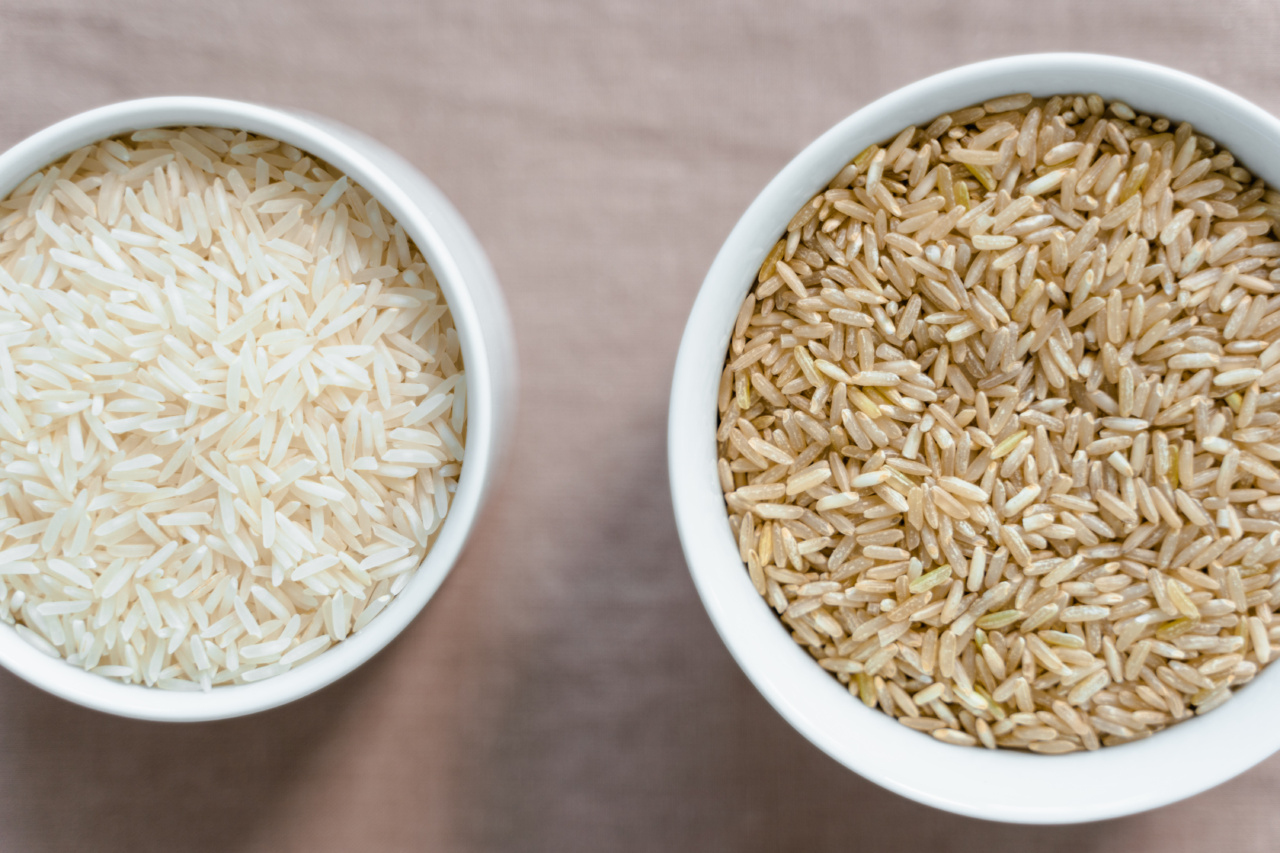Crohn’s disease and ulcerative colitis, collectively known as inflammatory bowel diseases (IBD), are chronic conditions characterized by inflammation of the gastrointestinal tract.
Individuals with Crohn’s disease or ulcerative colitis often experience symptoms like abdominal pain, diarrhea, rectal bleeding, and weight loss. While there is no known cure for these conditions, certain dietary interventions can help alleviate symptoms and improve overall quality of life.
Understanding Dietary Fiber
Dietary fiber refers to a type of carbohydrate that cannot be digested by the human body. It is derived from plant-based foods and passes through the digestive system relatively intact.
Dietary fiber can be classified into two main types: soluble fiber and insoluble fiber.
Benefits of Dietary Fiber for Crohn’s and Ulcerative Colitis
Dietary fiber plays a crucial role in promoting gut health and reducing inflammation, making it beneficial for individuals with Crohn’s disease and ulcerative colitis. Here are several ways in which dietary fiber can improve symptoms:.
1. Promotes Regular Bowel Movements
Fiber adds bulk to the stool, making it easier to pass through the intestines. This helps promote regular bowel movements in individuals suffering from constipation, a common symptom of inflammatory bowel diseases.
Consuming fiber-rich foods can prevent or relieve constipation, leading to decreased discomfort and improved overall bowel function.
2. Reduces Diarrhea
Contrary to its effect on constipation, dietary fiber can also help regulate bowel movements in individuals experiencing diarrhea. Certain soluble fibers have the ability to absorb excess water in the intestines, resulting in firmer stools.
By reducing the frequency and severity of diarrhea, fiber can provide relief to those with Crohn’s disease or ulcerative colitis, allowing for better nutrient absorption and preventing dehydration.
3. Maintains Intestinal Barrier Function
The intestinal barrier plays a crucial role in protecting the body against harmful substances and bacterial overgrowth.
A compromised intestinal barrier is commonly observed in individuals with Crohn’s disease and ulcerative colitis, leading to increased inflammation and disease severity. Dietary fiber, specifically the soluble type, acts as a prebiotic and promotes the growth of beneficial gut bacteria.
These bacteria help maintain the integrity of the intestinal barrier and reduce inflammation, reducing symptoms in individuals with IBD.
4. Modulates Gut Microbiota
The gut microbiota, composed of trillions of microorganisms residing in the gastrointestinal tract, plays a significant role in both health and disease.
Studies have shown that individuals with Crohn’s disease and ulcerative colitis exhibit an imbalance in their gut microbiota, known as dysbiosis. Dietary fiber acts as a fuel source for beneficial gut bacteria, allowing them to flourish and restore microbial balance. By promoting a diverse and healthy gut microbiota, fiber can help reduce inflammation and manage symptoms of IBD.
5. Reduces Inflammation
Inflammation is a hallmark feature of Crohn’s disease and ulcerative colitis.
Consuming an adequate amount of dietary fiber, particularly the insoluble type found in whole grains, fruits, and vegetables, has been associated with reduced levels of inflammation. Fiber exerts its anti-inflammatory effects by producing short-chain fatty acids (SCFAs) during fermentation in the colon.
SCFAs act as energy sources for intestinal cells and possess anti-inflammatory properties, helping to alleviate symptoms and improve disease outcomes.
Fiber-Rich Foods to Incorporate into Your Diet
In order to reap the benefits of dietary fiber, it is important to incorporate fiber-rich foods into your daily diet. Here are some excellent sources of dietary fiber:.
1. Whole Grains
Whole grains, such as oats, brown rice, quinoa, and whole wheat, are rich in insoluble fiber. They can be consumed as cereals, bread, pasta, or side dishes to boost your fiber intake.
Opt for whole grain varieties whenever possible to maximize nutritional benefits.
2. Fruits
Fruits like apples, berries, oranges, pears, and bananas are excellent sources of fiber. They can be enjoyed as snacks or incorporated into smoothies, salads, and desserts.
Include a variety of fruits in your diet to obtain different types of fiber and additional vitamins and minerals.
3. Vegetables
Leafy greens, broccoli, Brussels sprouts, carrots, and sweet potatoes are just a few examples of fiber-rich vegetables. Experiment with different cooking methods, such as steaming or roasting, to retain their nutritional value and enhance their flavor.
4. Legumes
Legumes, including beans, lentils, chickpeas, and peas, are packed with both soluble and insoluble fiber. They are versatile ingredients that can be added to soups, stews, salads, or enjoyed as a side dish.
Incorporating legumes into your diet can significantly boost your fiber intake.
5. Nuts and Seeds
Nuts, such as almonds, walnuts, and peanuts, as well as seeds like chia, flax, and pumpkin seeds, are nutritious sources of fiber. They can be eaten as snacks, sprinkled over salads or yogurt, or used in baking and cooking.
Conclusion
Dietary fiber plays a vital role in managing symptoms of Crohn’s disease and ulcerative colitis.
Its ability to promote gut health, reduce inflammation, and modulate gut microbiota makes it a valuable nutritional component for individuals with IBD. By incorporating fiber-rich foods into your daily diet, you can improve bowel regularity, reduce diarrhea, maintain intestinal barrier function, restore gut microbial balance, and alleviate inflammation.
Remember to gradually increase your fiber intake and drink plenty of fluids to avoid any digestive discomfort. Additionally, consult with a healthcare professional or registered dietitian for personalized dietary advice to suit your specific needs.





























